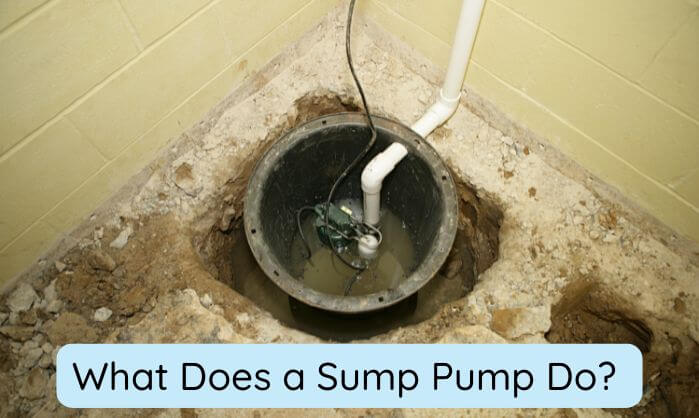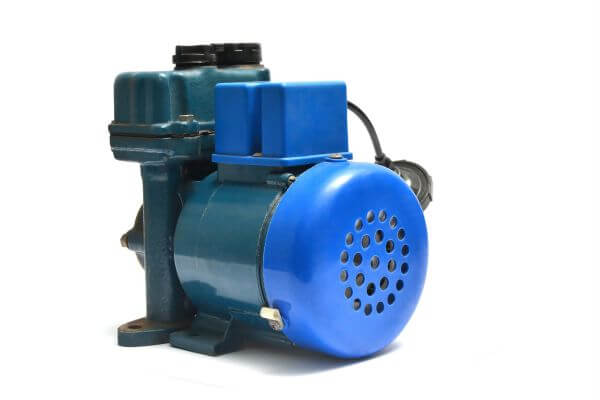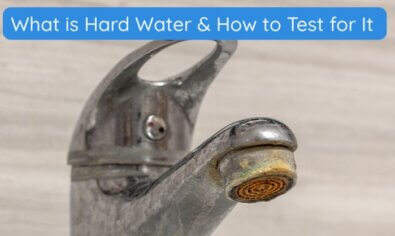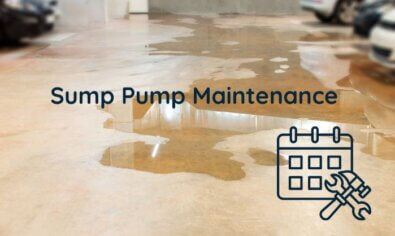What Does a Sump Pump Do? Preventing Home Water Damage
Water is essential for life, but when it invades your home, it can become a destructive force.
In northern Illinois, with its heavy spring rains and potential for snowmelt, and even in sunny West Palm Beach with its sudden downpours, a reliable defense against flooding is crucial. That’s why many homeowners might be asking, <strong>what does a sump pump do, and why do I need one?
Let’s explore this unsung hero of home protection:
- How sump pumps work and why they’re an essential investment
- The importance of preventing water damage, flooding, mold, fires and other costly problems
- Myths and misconceptions
- The different types of sump pumps and which is best for your needs
Keep reading to discover why a sump pump plays a vital role in safeguarding your property.

What Does a Sump Pump Do?
A sump pump can be your home’s first line of defense against water intrusion from extreme weather and urban flooding.
Installed in the lowest part of your basement or crawlspace in a specially constructed pit called a sump basin (or sump pit), these devices automatically activate when water levels rise, pumping excess groundwater away from your foundation to prevent moisture damage, mold growth, and more.
Think of a sump pump as your basement’s personal bodyguard, standing vigilant 24/7 to intercept and redirect unwanted water before it can wreak havoc on your property.
In regions like Chicagoland, where spring thaws and wild weather can saturate the ground, or in West Palm Beach, where tropical storms and high water tables present constant challenges, sump pumps aren’t just convenient — they’re critical home protection systems.
How Do Sump Pumps Work?
The operation of a sump pump is elegantly simple, yet remarkably effective:
- Collection: The sump basin or pit collects water from drain tiles around your foundation or from naturally rising groundwater.
- Detection: A float switch or pressure sensor detects when water in the basin reaches a predetermined level.
- Activation: When triggered, the pump motor turns on automatically.
- Removal: The pump draws water from the basin and expels it through a discharge pipe that leads outside and away from your home, typically 10-20 feet away from the foundation.
- Prevention: By removing this water, the sump pump keeps groundwater levels below your basement floor, preventing seepage through cracks or joints in your foundation.
This cyclical process ensures that water is continuously removed, preventing it from reaching a level that could flood your basement or lower levels, causing hassle, headaches, and a huge mess.
Click here to learn more about the Best Sump Pump to Buy in 2025!
What a Sump Pump Can and Can’t Do
While sump pumps are a highly effective tool in preventing water intrusion, they are not a catch-all solution for every type of water issue in your home. Let’s break down some common misconceptions:
What Does a Sump Pump Do?
✅ Prevent basement and crawl space flooding by actively removing water.
✅ Protect your home’s foundation from water damage, reducing the risk of cracks and structural instability.
✅ Reduce humidity levels in the basement, which can help prevent mold and mildew growth. If your humidity levels are high, a separate dehumidifier may be necessary to control moisture levels in your basement and throughout your home.
✅ Provide peace of mind during heavy storms or rapid snowmelt events.
What a Sump Pump Doesn’t Do:
❌ Stop plumbing leaks: Sump pumps only handle groundwater; they won’t help if a pipe bursts inside your home.
❌ Work during a power outage: Unless you have a battery backup or water-powered backup system, a sump pump will not function if your home loses electricity.
❌ Address sewer backups: A sump pump is designed for groundwater control, not for handling issues with your home’s sewer system.
❌ Remove sewage: If you’re dealing with a sewage backup issue, it’s highly recommended to call a professional sewage cleanup service, who have the necessary training, equipment, and protective gear.
What’s the Best Sump Pump for Your Home?
If you’re experiencing basement flooding and water intrusion, it’s imperative to do your due diligence and become an expert on the matter of what does a sump pump do.
There are three primary types of sump pumps:
Illinois Water Utilities have been reporting some gross contaminants!
Check out the concerning contamination that has been reported by public water utilities in Illinois!

Submersible sump pumps
These pumps are installed directly inside the sump pit and operate underwater. They tend to be quieter and take up less space but they’re much more powerful and may require more maintenance.
Pedestal sump pumps
This variety have a motor that sits above the pit and an intake pipe that reaches down into the sump basin. While they are typically louder than submersible pumps, they often last longer due to reduced exposure to water, but they’re not designed for regions prone to regular flooding or that have high levels of radon.
Battery backup sump pumps
A battery backup pump ensures that your home stays protected even during power outages. These models kick in automatically when the primary pump fails, a circuit breaker is tripped, or when the main power supply is knocked out. These can be especially crucial during a severe blizzard or hurricane.
You might also consider a water-powered backup (which uses the pressure of your home’s water supply to operate) or a combination sump pump system, which provides homeowners with both reliability and redundancy in case of an emergency.
Sump pumps come in a variety of sizes, and selecting the right one for your home depends on a variety of factors:
- Capacity: The number of gallons per hour (GPH) the pump can handle, the amount of water that enters your sump pit during precipitation events, and the type of soil around your property.
- Power: The horsepower (HP) of the pumps motor, the power source, and if you need a battery backup.
- Operation: Whether the pump is automatic or manual, does it have a float switch or sensor, and is it constructed of durable, corrosion-resistant materials like cast iron, bronze, stainless steel, or plastic.
- Water removal needs: If you have a larger basement or a deeper sump pit, this will require a pump with a higher capacity. Property owners who experience frequent flooding or live in an area with a water table close to the surface will need to go bigger.
It’s always best to consult with an experienced licensed plumber to ask them “what does a sump pump do?” and determine which sump pump is the best for your home. Professional installation is a must, as an improperly installed device can lead to disaster.

Why You Need a Sump Pump
Let’s take a closer look at what a sump pump does and how a sump pump can serve several critical functions in protecting your home.
Flood Prevention
One of the primary roles of a sump pump is to prevent flooding in your basement or crawl space. By quickly removing excess water and getting it away from your home, it helps maintain a dry environment even during the most extreme storms.
Foundation Protection
Excessive water around your home’s foundation can lead to serious structural issues over time. The pressure from accumulated water can cause cracks, leaks, and even severe damage. A sump pump helps keep water from seeping into the soil around your home’s foundation, reducing the risk of expensive repairs.
Mold and Mildew Prevention
Basements and crawl spaces are prone to collecting excess moisture, creating an ideal environment for mold and mildew growth. By removing excess water promptly, sump pumps help prevent the conditions that lead to mold proliferation, thereby improving indoor air quality.
Property Peace of Mind
Beyond protecting the structure of your home, a functional sump pump also safeguards valuable possessions and furnishings stored in your finished basement from water damage.
Floodwater can contain many contaminants, including harmful bacteria, viruses, chemicals, and hazardous waste. A sump pump can keep your loved ones safe from water-borne diseases.
Insurance Compliance
In some areas prone to flooding or water-related issues, building codes or insurance requirements may mandate the installation of sump pumps as part of flood mitigation strategies.
Most standard homeowners’ insurance policies do not cover damage caused by a sewer backup or a sump pump failure. Talk to your agent about adding this type of coverage to your policy if you live in a flood-prone area.
Maintaining Your Sump Pump for Optimal Performance
To ensure your sump pump continues to protect your home, regular maintenance is key. Here are some essential upkeep tasks:
- Test your pump regularly by pouring a bucket of water into the sump pit to ensure it activates properly.
- Clean the pump and pit to remove debris that could clog the system.
- Check the discharge line to make sure it’s free from blockages and extends far enough from your home’s foundation.
- Inspect the float switch to ensure it moves freely and isn’t obstructed.
- Replace backup batteries every 2-3 years to maintain reliability during power outages.
Angel Water Can Help!
If you’re a Northern Illinois or Southeastern Florida property owner who’s worried about the increasing change of basement flooding and asking, “what does a sump pump do?,” the experts at Angel Water are here to help.
Our mission is to bring clean, pure drinking water to everyone and promote healthier homes and families. Not having a sump pump (or one that fails when you need it most) can lead to a cascade of expensive issues.
Don’t take that risk — reach out to the licensed plumbers of Angel Water today!
Interested in a Water Softener System for Your Home?
You don’t have to live with a dry, itchy scalp and brittle hair anymore! It would be our pleasure to help you find the right water softener to make your showers enjoyable again.
Please give us a call at (847) 382-7800 or visit our water softener page to learn more.




